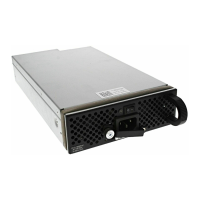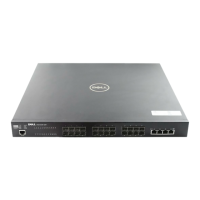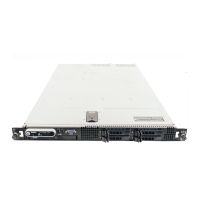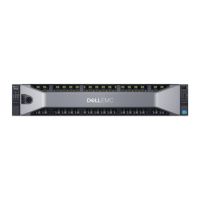110 | Content Addressable Memory (CAM)
www.dell.com | support.dell.com
The ipv6acl and vman-dual-qos allocations must be entered as a factor of 2 (2, 4, 6, 8, 10). All other profile
allocations can use either even or odd numbered ranges.
You must save the new CAM settings to the startup-config (
write-mem or copy run start) then reload the
system for the new settings to take effect.
To configure the IPv4 ACLs and QoS regions on the entire system, follow these steps:
Test CAM Usage
This command applies to both IPv4 CAM profiles, but is best used when verifying QoS optimization for
IPv6 ACLs.
Use this command to determine whether sufficient ACL CAM space is available to enable a service-policy.
Create a class map with all required ACL rules, then execute the
test cam-usage command in Privilege
mode to verify the actual CAM space required. Figure 7-1 gives a sample of the output shown when
executing the command. The status column indicates whether or not you can enable the policy.
Note: On the MXL 10/40GbE Switch IO Module, there can be only one odd number of blocks in the
command line interface (CLI) configuration; the other blocks must be in factors of two. For example, a CLI
configuration of 5+4+2+1+1 blocks is not supported; a configuration of 6+4+2+1 blocks is supported.
Step Task Command Syntax Command Mode
1
Select a cam-acl action
cam-acl [default | l2acl]
CONFIGURATION
Note: Selecting default resets the CAM entries to the default settings. Select l2acl to allocate space for
the ACLs and QoS regions.
2 Enter the number of FP blocks for each
region.
l2acl number ipv4acl number ipv6acl
number, ipv4qos number l2qos
number, l2pt number ipmacacl number
ecfmacl number [vman-qos |
vman-dual-qos number
EXEC Privilege
3 Reload the system.
reload
EXEC Privilege
4 Verify that the new settings will be written
to the CAM on the next boot.
show cam-acl
EXEC Privilege
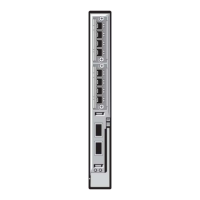
